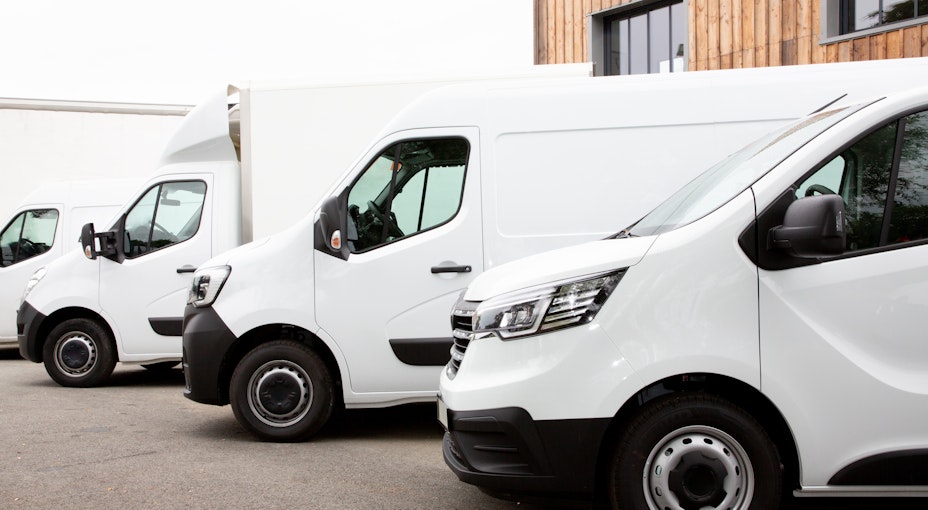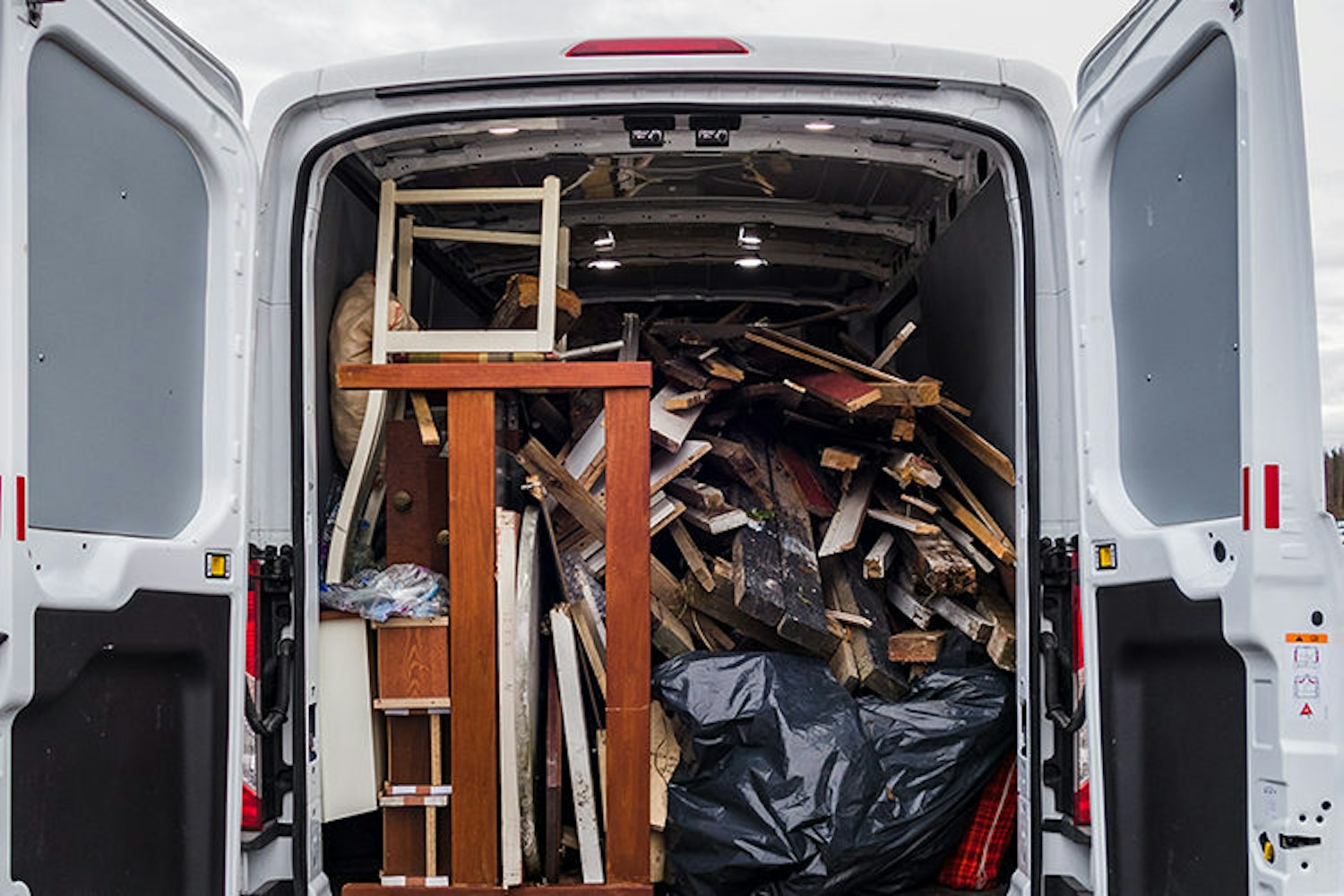What type of van insurance do I need?
If you’re a first-time van owner, you’ll need to make sure you choose the right class of use when it comes to sorting out your van insurance. Not having suitable cover can result in an unlimited fine and up to eight penalty points being added to your licence.
18.07.25
By
![]() Tom Head
Tom Head

In this article
To ensure you don’t get caught out, here’s how to decide what policy’s right for you.
What are the different types of van insurance?
‘Class of use’ is a term that describes the way you use your vehicle. Although most policies can be tailored to suit you, there are four main options to choose from:
Social, domestic and pleasure (SDP)
This means you only use your van for personal reasons, for example, running errands, doing the school run, or using your van on holiday.
SDP plus commuting
As well as using your van for personal and social reasons, this also means you can drive it to work (typically, this is limited to just one place of work). If you’re commuting to different premises or sites, it’s worth mentioning to your insurer, who will ensure your policy reflects that.
Carriage of own goods (business use)
This covers you to carry your own tools or equipment in your van as you travel from job to job. Carriage of own goods is one of the main types of van insurance used by self-employed tradespeople or sole traders.
Carriage of goods for hire and reward
These policies cover you to carry other people’s goods in exchange for payment. If you’re a courier delivering parcels, this is likely the type of van insurance best suited to you.
What’s the difference between commercial and personal van insurance?
Commercial van cover is aimed at anyone who uses their van for business purposes, for example:
delivering parcels if you’re a courier;
carrying your own tools from job to job if you’re a tradesperson.
Two of the main types of business van insurance are carriage of own goods and carriage of goods for hire and reward.
If you only use your van for domestic reasons (SDP or SDP plus commuting to a single workplace), then these activities will be covered by personal van insurance.
What happens if I choose the wrong class of use?
Having the wrong class of use means you don’t have the right cover for your needs, which invalidates any policy you have. This essentially means you’re driving without insurance.
In the UK, uninsured driving is considered a ‘strict liability offence’; so having the wrong insurance is the same as having no insurance. It doesn’t matter that your lack of cover is unintentional – you’ll still face the same penalties (an unlimited fine and up to eight penalty points).
What levels of van cover are there?
As well as class of use, you’ll need to choose the level of cover you want:
Third-party only – this compensates other people (third parties) for damage or injury you cause in an accident; it doesn’t cover your van for damage.
Third-party, fire, and theft – as well as third-party cover - these policies will also compensate you if your van is stolen or damaged by fire.
Comprehensive cover – this includes third-party, fire and theft and will also cover your van if it’s damaged in an accident.
What extra van insurance add-ons are there?
Insurers will also give you the chance to add on optional extras. These can help increase your overall protection and cover you for more activities or events. Extras to consider include:
Goods in transit
Goods in transit insurance covers other people’s items in your van and will compensate you if they’re lost, damaged or stolen.
It’s worth bearing in mind that although they sound similar, goods in transit is not the same as carriage of goods for hire and reward. Hire and reward insurance only insures you to drive your van whilst you’re transporting items for delivery.
Goods in transit insures the actual items that you’re carrying; for example, if you’re delivering parcels and someone steals something, goods in transit insurance covers the cost of the stolen item.
Tools in transit
These policies protect your own tools in transit, so you’ll be compensated for the loss, damage or theft of your belongings.
Most policies with tools in transit cover will have certain conditions that you’ll need to meet. Often, this means you can’t store tools in your van overnight, or if you can, you might be expected to have a specific type of lock.
Breakdown cover
If you’re worried about breaking down at the side of the road, then adding this can give you reassurance that you won’t be left stranded.
Most providers will offer you a choice of breakdown cover, allowing you to select the level that suits you best or fits your budget. For example, roadside assistance means a mechanic will try to fix your van there and then. If they can’t, your van will be towed to the nearest garage.
The next level up from roadside assistance is national recovery, where your van is towed to a garage of your choice. Onward travel is another option to consider, which will cover the cost of alternative transport (such as a hire van).
Public liability insurance
Public liability insurance covers you if a member of the public blames you for damage or injury in relation to your business. For example, if someone walks into your van door as you’re opening it, or if you’ve got an electric van and someone trips over its charging cable.
You don’t need public liability insurance by law, but if you’re running a business, it’s strongly recommended. In some cases, it might also be essential if you want to work with public services, such as local authorities, schools, and hospitals.
What factors affect the cost of van insurance?
As with car insurance, several factors influence the cost of van insurance, as providers assess the risk of you being involved in an accident. Points that insurers consider include:
The van you drive – larger, more powerful and expensive vans cost more to insure because the potential for damage is greater, and it’s likely to cost more to fix. You can gauge how expensive insurance might be by checking a van’s insurance group rating; lower ratings generally mean lower premiums.
Your age – young drivers pay more than the average for insurance because, statistically, they’re at greater risk of being in an accident. So, if you (or your employees) are under 25, this will be reflected in a higher premium.
Your driving experience – regardless of age, if you’ve only recently passed your test, there’s a good chance you’ll pay slightly more compared to experienced drivers.
Your driving history – claims within the last five years, driving convictions, and penalty points mean you’ll pay higher premiums. Your choice of insurer may also be limited.
Mileage – the more miles you drive, the greater the chance of being involved in an accident, which is reflected in a higher premium. While it’s not always possible to reduce your mileage, being as accurate as possible can help prevent you from paying more than you need.
Security features – you can keep premiums down by making it harder to break into or steal your van. For example, keeping it in a garage or investing in an immobiliser.
Where you live – premiums can be higher if you live somewhere with a higher-than-average crime rate.
Van insurance for peace of mind
Van insurance must reflect the way you use your vehicle – whether that’s purely for personal reasons or work. Not having the right cover doesn’t just invalidate any policy you have; it can result in fines and penalty points, which stay on your licence for four years. This can also make insurance more expensive when you come to renew.
At Alan Boswell Group, we offer simple, flexible van insurance tailored to suit you.
Send an enquiry
FAQs
Whether you drive a transit or splitter van, you’ll need valid insurance that reflects the way you use your vehicle. For example, if you’re a tradesperson, carriage of own goods covers you to carry tools and equipment in your van.
You can increase your level of protection by adding options including tools in transit and breakdown cover.
Yes. Van insurance can cover commuting if you choose this as part of its class of use.
If your policy doesn’t cover the activities you’re using your van for, you’re technically driving without insurance. The penalty is an unlimited fine and up to eight penalty points.
Yes. You can get short-term or temporary van insurance for periods ranging from one day to a month. Policies are sometimes age-restricted depending on the provider, and you may need to be at least 21 years old to get short-term cover.
While price is important, don’t forget that insurance is your safety net, so it’s vital to consider the type of cover you’re getting, as well as cost. That said, you can help lower premiums by:
paying for your policy annually instead of monthly;
increasing your excess;
adding a more experienced named driver to the policy;
investing in security, such as an immobiliser;
lower your mileage if practical;
only pay for the options you need.
Related guides and insights

Carriage of own goods explained
If you’re using your van to carry tools, equipment, or stock, it’s vital to make sure your van insurance gives you the cover you need. We look at what carriage of own goods means, and most importantly, who needs it.

The dangers of overloading your van
If a van gets stopped for overloading and is also found to suffer mechanical defects, it could result in a court appearance or large fine.

Common mistakes when hiring out a campervan
Running a self-drive hire business is no mean feat. As any established business owner will know, there’s a plethora of potential perils to navigate, from market competition, to fraudulent customers, to vehicle damage or late return.

Guide to campervan and motorhome licences
If you’re considering buying a campervan or motorhome, you'll need to consider the type of license you need. We explore what type of driving licence you need in order to drive different motorhomes, as well as what you can do to upgrade your licence.
